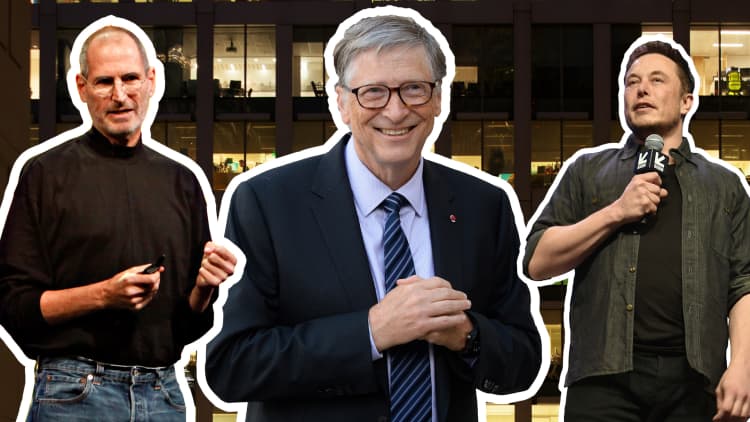When Steve Jobs was in high school, he cold-called Hewlett-Packard's co-founder Bill Hewlett to request some leftover electronic parts and, to his surprise, Hewlett picked up the phone. At first, the exec was amused, and soon after, taking the young man more seriously, he offered Jobs an internship.
"He laughed and he gave me the spare parts to build the frequency counter and he gave me a job that summer at Hewlett-Packard, working on the assembly line putting nuts and bolts together on frequency counters," Jobs recalled in a 1994 interview archived by the Silicon Valley Historical Association. "He got me a job in the place that built them and I was in heaven."
Jobs was 12 years old at the time, living in Mountain View, California, and had found Hewlett's number in the phone book.
“I’ve always found something to be very true, which is most people don’t get those experiences because they never ask,” Jobs said. “I’ve never found anybody that didn’t want to help me if I asked them for help.”
Internships remain a crucial way to advance your career, according to the National Association of Colleges and Employers (NACE). In fact, hiring managers say that interning within your preferred industry is more important than your college major or GPA, NACE's 2018 Job Outlook survey finds. “Employers prefer work experience, and in particular they prefer that the experience was obtained through an internship or co-op experience,” NACE research manager Andrea Koncz tells CNBC Make It.
Even if the internship experience isn’t directly tied to your dream job, they “provide work experience, so it may help young students to determine whether they will enjoy the type of work or industry that they experienced while being an intern,” Koncz adds.

Decades later, a young professional named Katia Beauchamp used the same tactic on Jobs that he had used on Hewlett. Just before beginning classes at Harvard Business School in 2008, she cold-emailed Jobs to ask him for a deal on a laptop. "He responded, actually. And I think [in] less than 24 hours," she told CNBC Make It. Jobs gave her a deal on a first edition MacBook Air.
Beauchamp graduated business school in 2010 and immediately launched a beauty subscription service called Birchbox, valued at $485 million in 2014. The success of her email to Jobs "definitely taught me the power of asking, but also how important it is in the approach,” she said.
Despite her lack of access to prominent CEOs in the tech and beauty industries, sending cold emails became Beauchamp's go-to strategy. For Birchbox, the well-crafted cold emails had a snowball effect: Emails "turned into a meeting. And the meeting turned into a pitch," she said. Beauchamp remains a vocal advocate for cold-emailing people as method to connect with those who could potentially grow your business or career.
Being willing to reach out and risk rejection is what separates “the people who do things from the people who just dream about them,” Jobs said. Getting over your fear of failure, he added, can lead to success.
“You've got to be willing to crash and burn, with people on the phone, with starting a company, with whatever,” Jobs said. “If you’re afraid of failing, you won't get very far.”
Like this story? Subscribe to CNBC Make It on YouTube!
Read more:



